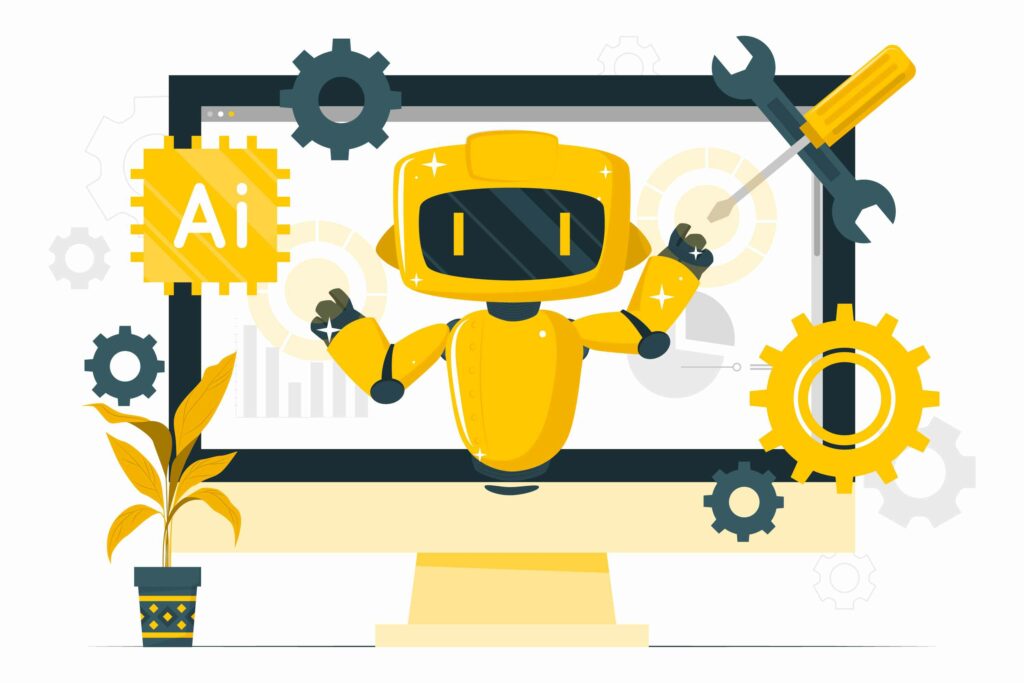
AI CERTS
5 months ago
Advanced AI Engineering Course for the Future of Innovation
Artificial intelligence (AI) has become a cornerstone of technological innovation, powering advancements in industries ranging from healthcare to finance. As AI technologies grow more sophisticated, the demand for professionals with in-depth technical expertise in AI engineering continues to rise. An advanced AI engineering course is designed to equip learners with the skills needed to design, implement, and optimize AI systems.
This article explores the essential components of Advanced AI engineering course, their real-world applications, the challenges of mastering AI engineering, and actionable steps for professionals seeking to excel in this dynamic field.

Why Pursue an Advanced AI Engineering Course?
AI is revolutionizing how businesses operate, solve problems, and deliver value. However, building and maintaining AI systems require more than just a basic understanding of algorithms; it demands specialized knowledge in data processing, machine learning architecture, and system deployment.An advanced AI engineering course is designed to equip learners with the skills needed to design, implement, and optimize AI systems.
Addressing the Skills Gap
An advanced AI engineering course bridges the gap between theoretical knowledge and practical implementation. These programs cater to professionals who aim to master AI development, from creating intelligent algorithms to deploying scalable AI systems.
Career Advancement Opportunities
The global AI market is projected to exceed $190 billion by 2025, according to research by MarketsandMarkets. Completing an advanced AI engineering course positions professionals for roles like AI engineer, machine learning specialist, and data scientist, with competitive salary prospects.
Key Components of an Advanced AI Engineering Course
1. Comprehensive Machine Learning Fundamentals
Machine learning (ML) is at the core of AI engineering. Courses provide a detailed understanding of:
- Supervised Learning: Training models on labeled datasets to predict outcomes.
- Unsupervised Learning: Discovering hidden patterns in data without predefined labels.
- Deep Learning: Utilizing neural networks to solve complex tasks like image recognition and natural language processing.
These modules emphasize practical applications, ensuring learners can implement ML techniques in real-world scenarios.
2. Data Processing and Management
Data is the foundation of AI, and advanced courses delve deeply into data management techniques. Participants learn to:
- Preprocess raw data for machine learning.
- Handle large-scale datasets efficiently.
- Ensure data integrity and security during processing.
By mastering data workflows, AI engineers can build robust systems capable of delivering accurate and reliable outputs.
3. AI Model Development and Optimization
Developing AI models requires proficiency in programming languages like Python and frameworks such as TensorFlow and PyTorch. Advanced courses teach learners to:
- Design custom algorithms for specific business needs.
- Optimize models for speed and accuracy.
- Test and validate AI systems to ensure reliability.
4. System Deployment and Scalability
AI systems must perform effectively in real-world environments. This component covers:
- Cloud Integration: Deploying AI solutions using platforms like AWS, Google Cloud, and Microsoft Azure.
- Edge AI: Implementing AI models on edge devices for real-time processing.
- Continuous Monitoring: Ensuring AI systems adapt to new data and evolving requirements.
5. Ethics and Governance in AI
Ethical considerations are integral to AI engineering. Courses emphasize:
- Building unbiased and transparent AI models.
- Complying with data privacy regulations like GDPR.
- Addressing societal impacts of AI deployment.
Real-World Applications of Advanced AI Engineering
Advanced AI engineering has revolutionized industries across the globe, driving efficiency, accuracy, and innovation. These real-world applications showcase the critical role of AI in solving complex problems and improving outcomes. Let’s explore some sectors where advanced AI engineering has made a significant impact:
1. Healthcare Advancements
AI engineering has transformed the healthcare sector by enabling faster diagnoses, personalized treatments, and predictive analytics.
- Diagnostic Tools: AI-powered imaging systems, such as those developed by Google Health, detect diseases like cancer and cardiovascular conditions with unprecedented accuracy.
- Drug Discovery: AI algorithms expedite drug development by identifying potential compounds faster than traditional methods.
- Patient Monitoring: Wearable devices, powered by AI, track patient vitals in real-time, allowing healthcare providers to intervene early during medical emergencies.
External Resource: Learn more about AI’s impact on healthcare at Forbes AI Healthcare.
2. Financial Fraud Detection
In the financial sector, AI systems analyze vast amounts of transactional data to identify fraudulent activities.
- Fraud Prevention: Machine learning models detect unusual patterns, safeguarding institutions against fraud.
- Automated Trading: AI algorithms predict market trends, enabling efficient and profitable trading.
- Credit Scoring: AI evaluates creditworthiness more accurately by analyzing diverse financial behaviors.
3. Autonomous Systems
AI engineers play a pivotal role in developing autonomous technologies, including self-driving cars and drones.
- Autonomous Vehicles: AI models process sensor data to enable real-time decision-making, ensuring safe navigation.
- Drones: Used in agriculture, drones powered by AI monitor crop health, optimize irrigation, and increase yield.
4. Retail Optimization
AI-driven analytics provide valuable insights into customer behavior, helping retailers optimize inventory, pricing, and marketing strategies.
- Personalized Recommendations: Platforms like Amazon leverage AI to offer tailored product suggestions.
- Supply Chain Efficiency: Predictive analytics streamline inventory management, reducing costs.
Challenges in AI Engineering
While advanced AI engineering offers immense potential, it comes with significant challenges that engineers and organizations must address.
1. Complexity of AI Models
Designing and implementing AI systems require deep expertise in mathematics, algorithms, and programming.
- Challenge: Engineers must optimize models to perform efficiently while maintaining accuracy.
- Solution: Pursuing an advanced AI engineering course helps professionals build the skills needed to tackle complex AI challenges.
2. Data Availability and Quality
AI systems depend on high-quality data for training. However, acquiring relevant datasets can be challenging.
- Issues: Data silos, inconsistencies, and biases can compromise AI performance.
- Solution: Training in data preprocessing and validation, offered by reputed certifications like AICERTs, equips engineers to handle data-related issues effectively.
3. Ethical Concerns
AI systems often face scrutiny for biases, privacy breaches, and lack of transparency.
- Example: Algorithms trained on biased datasets may produce discriminatory outcomes.
- Solution: Ethical AI training modules included in advanced certifications help professionals design fair and accountable AI systems.
4. Resource Intensity
AI development requires substantial computational power, financial investment, and skilled personnel.
- Solution: Organizations can leverage cloud-based AI platforms to reduce costs and scale efficiently.
Emerging Trends in AI Engineering
The field of AI engineering continues to evolve, with emerging trends reshaping its applications and capabilities.
1. Explainable AI (XAI)
Transparency in AI decision-making has become a critical focus area.
- Application: XAI models help stakeholders understand the rationale behind AI predictions, fostering trust.
- Future: Regulatory bodies may soon mandate explainability in AI systems.
2. AI and IoT Integration
The convergence of AI with the Internet of Things (IoT) is enabling smarter devices and ecosystems.
- Example: Smart homes use AI-powered IoT devices to optimize energy consumption and improve security.
- Trend: AI engineers are increasingly tasked with building interconnected systems for seamless user experiences.
3. Edge Computing
AI is moving closer to the source of data collection, reducing latency and improving real-time processing.
- Example: Autonomous vehicles use edge computing to process sensor data locally, ensuring immediate responses.
4. Blockchain and AI Synergy
Combining blockchain with AI enhances data security, transparency, and traceability.
- Example: AI-driven analytics can ensure compliance while blockchain secures data integrity.
External Resource: Explore AI trends at TechCrunch AI Innovations.

Steps to Excel in an Advanced AI Engineering Course
To maximize the benefits of an advanced AI engineering course, professionals should follow a structured approach:
1. Build a Strong Foundation
Begin with a solid understanding of AI fundamentals, including algorithms, data structures, and programming languages like Python.
- Action: Use free resources and beginner-friendly platforms to gain a basic understanding.
2. Pursue Reputed Certifications
Enrolling in a recognized program like those offered by AICERTs ensures comprehensive training.
Why AICERTs?:
The AI+ Engineer™ certification equips participants with a comprehensive understanding of Artificial Intelligence (AI) principles, advanced engineering techniques, and practical applications. The program covers AI architecture, neural networks, Large Language Models (LLMs), Generative AI, and Natural Language Processing (NLP). It also introduces cutting-edge tools like Transfer Learning using frameworks such as Hugging Face. Learners will develop expertise in designing Graphical User Interfaces (GUIs) for AI systems, managing communication pipelines, and deploying AI applications. With hands-on experience and practical projects, graduates emerge as proficient AI engineers ready to tackle complex industry challenges and contribute to innovation in the ever-evolving AI landscape.
AI+ Engineer ™ certification course in reputed company like AICERTs.Use the coupon code NEWCOURSE25 to get 25% OFF on AI CERTS' certifications. Don't miss out on this limited-time offer! Visit this link to explore AI+ Engineer ™ certification and enroll today.
3. Focus on Practical Projects
Hands-on experience is critical to mastering AI engineering.
- Action: Work on capstone projects involving real-world problems, such as building predictive models or automating workflows.
4. Stay Updated with Trends
AI is a rapidly evolving field. Stay informed about the latest tools, frameworks, and research through industry blogs, webinars, and conferences.
5. Collaborate with Peers and Experts
Join professional communities and forums to exchange knowledge and gain insights from experienced practitioners.
An advanced AI engineering course is a stepping stone to mastering one of the most transformative fields in technology. By acquiring skills in machine learning, data management, system deployment, and ethical practices, professionals can drive innovation and solve complex challenges across industries. Pursuing certifications from reputed organizations like AICERTs ensures that learners are equipped with the expertise to lead AI-driven transformations confidently.